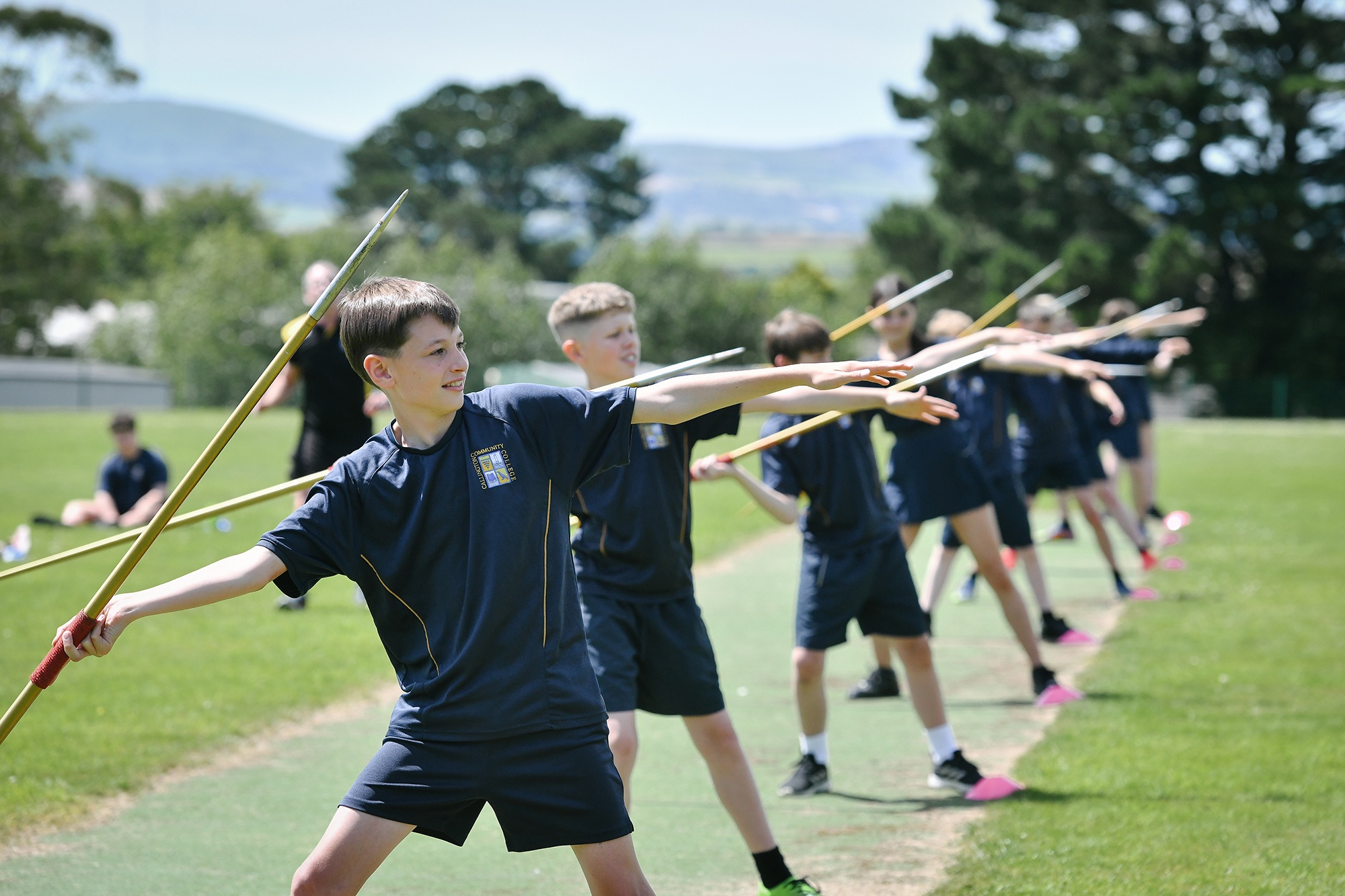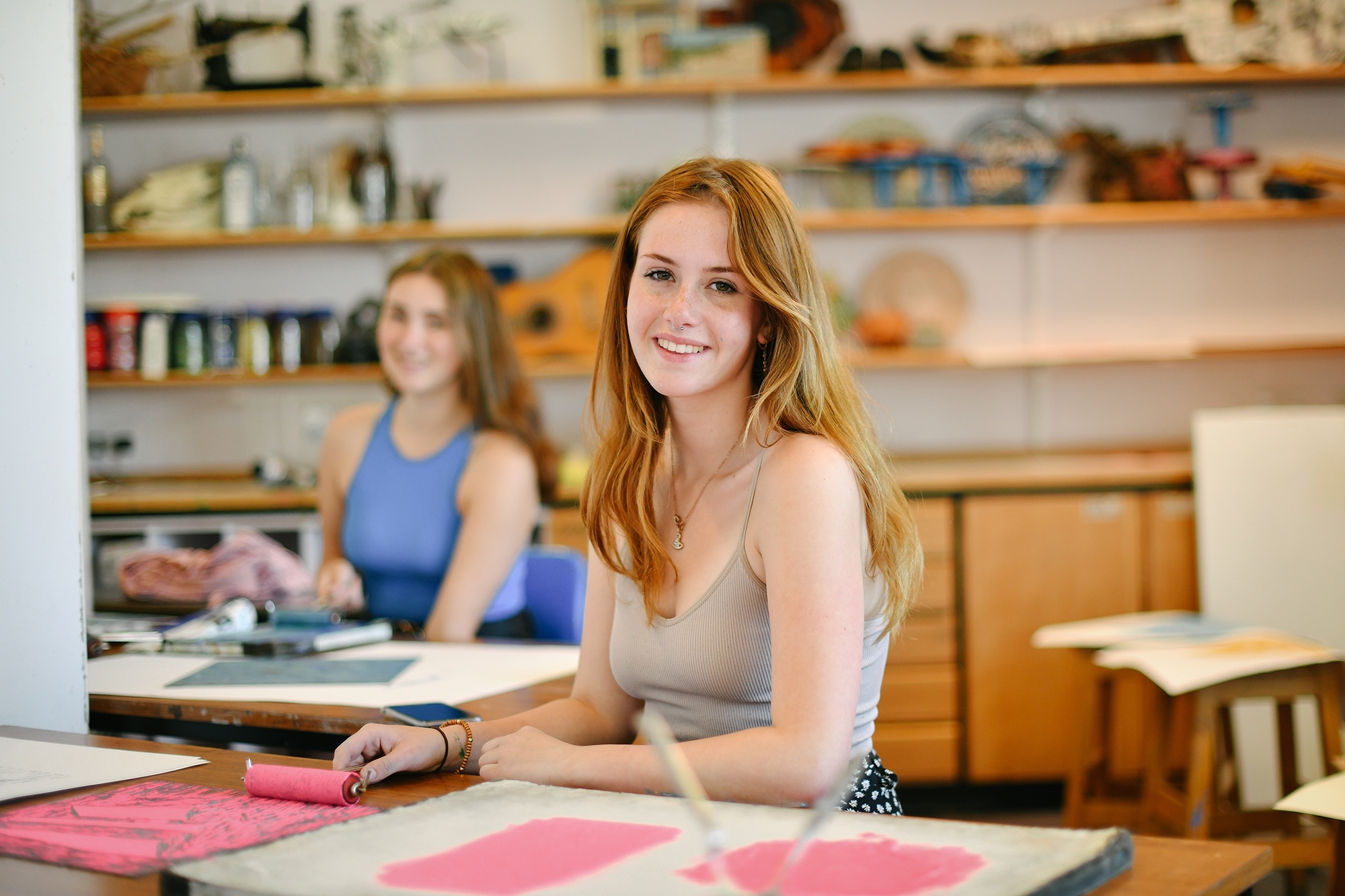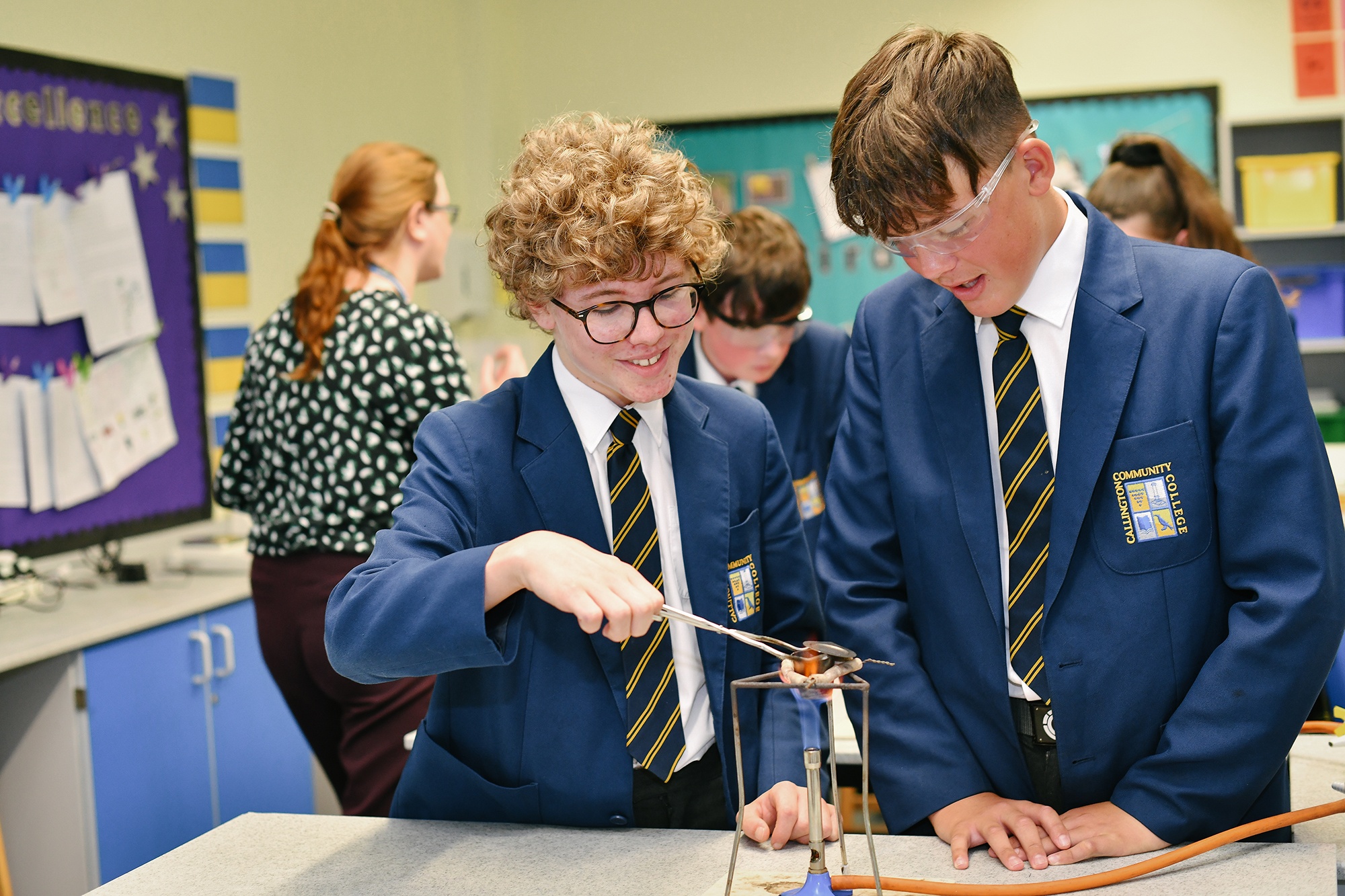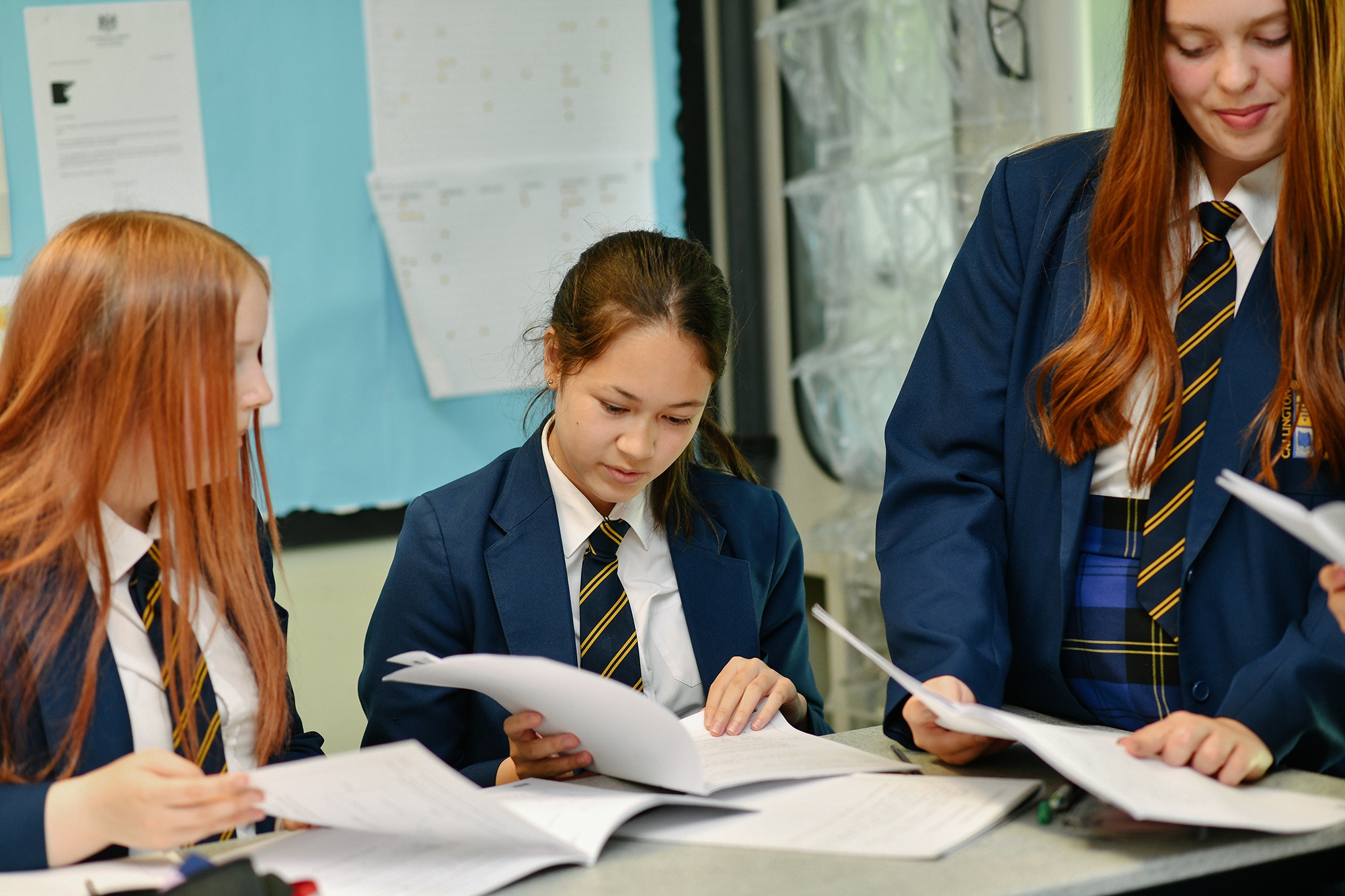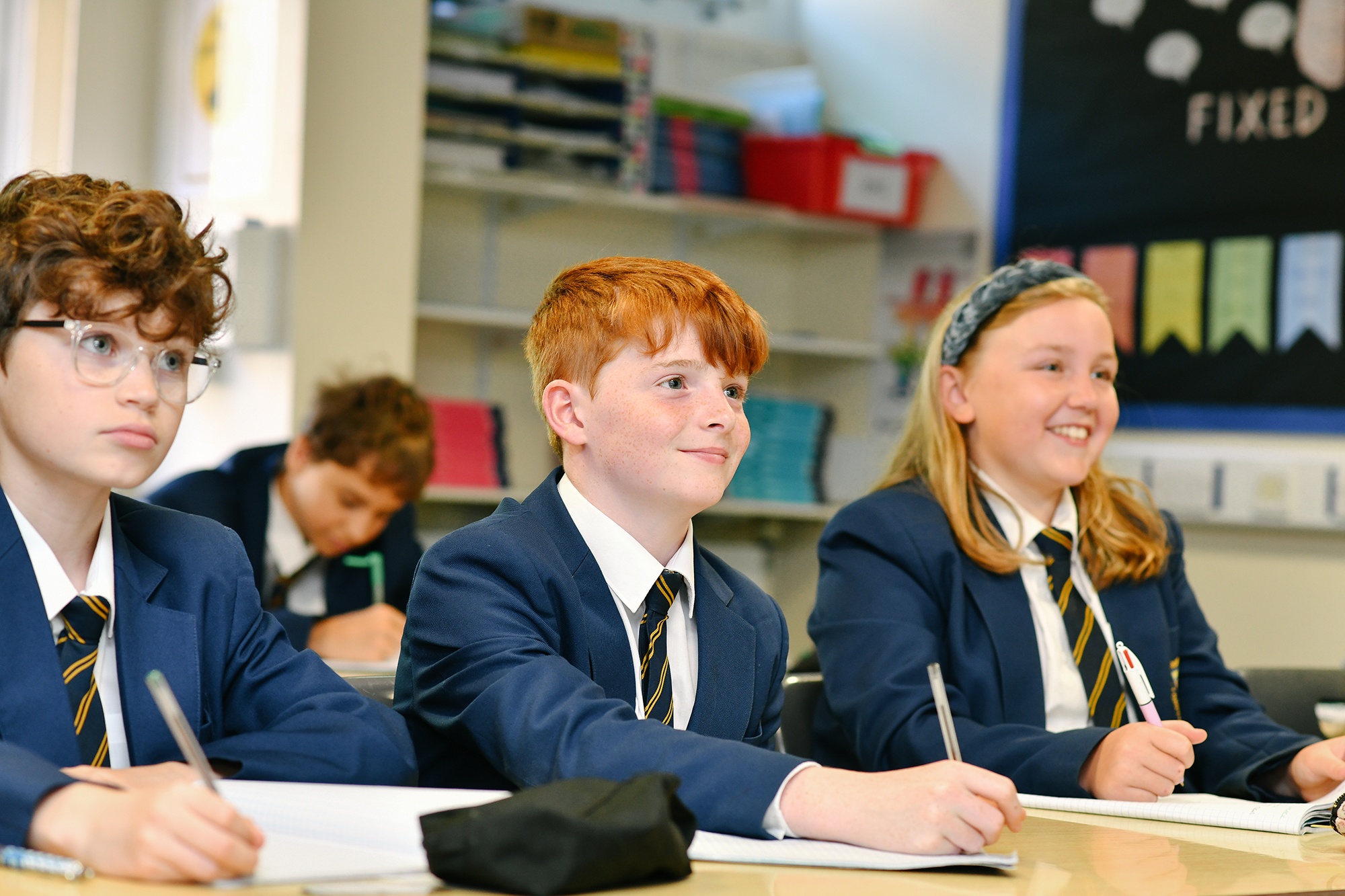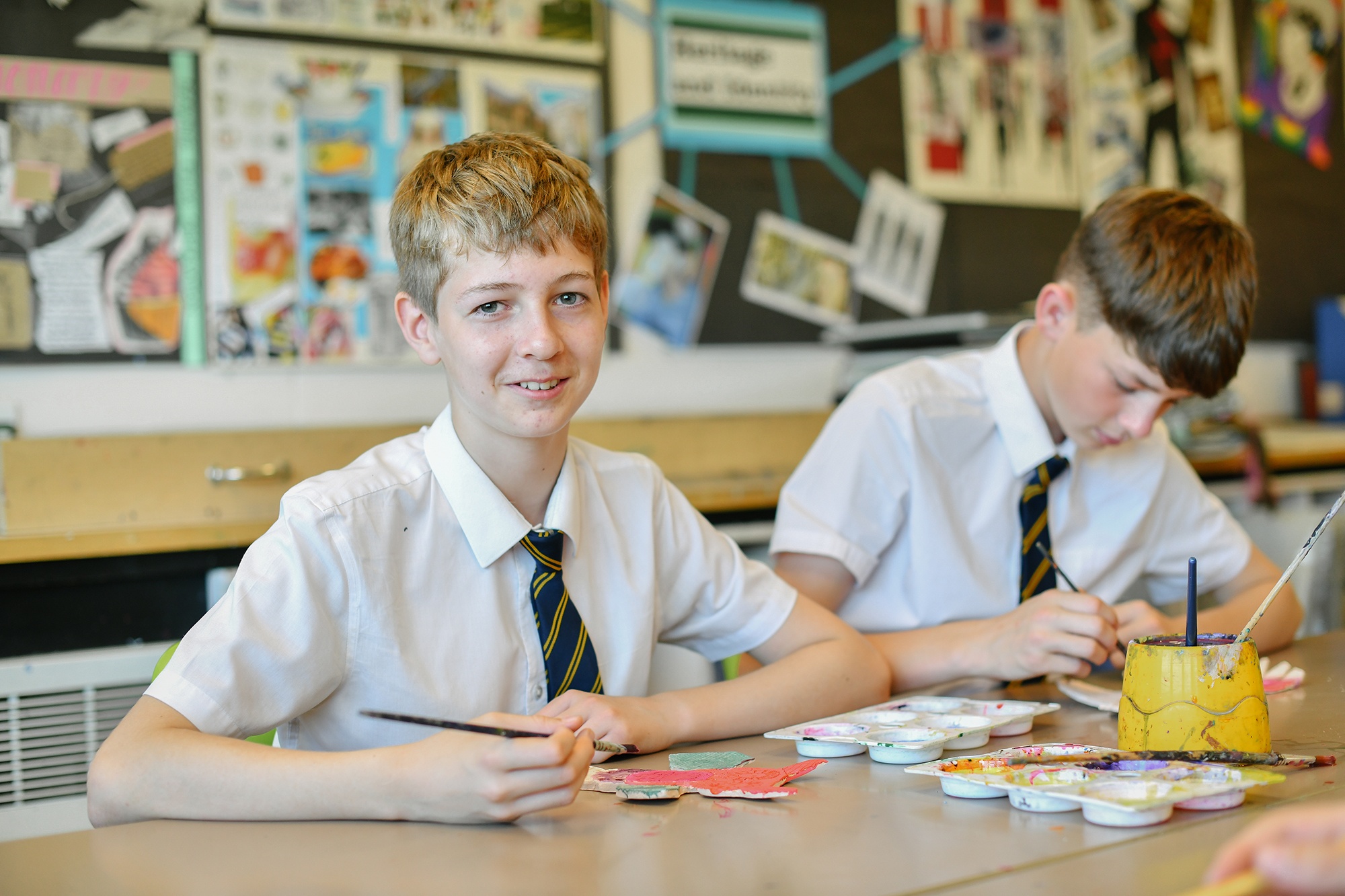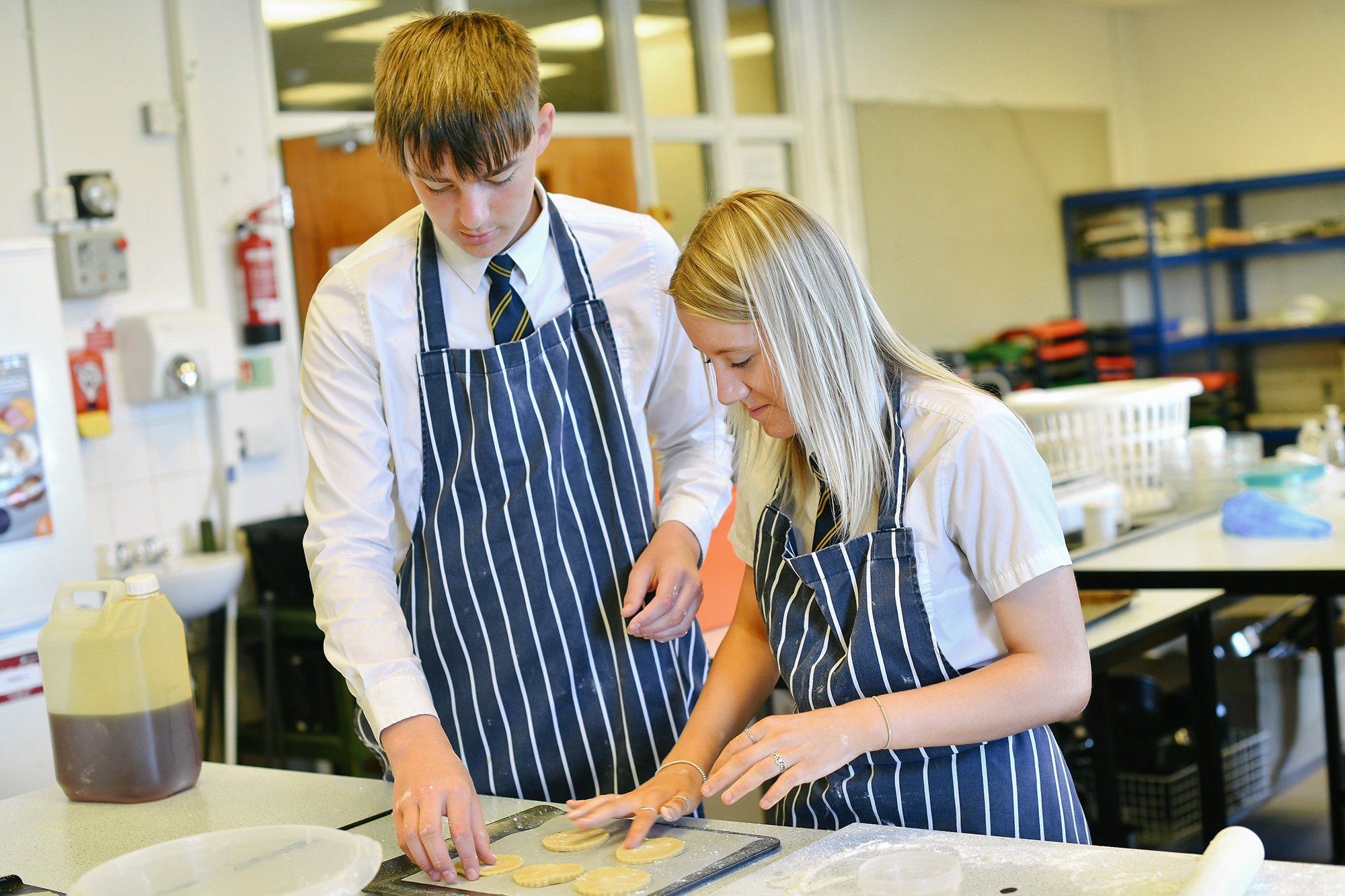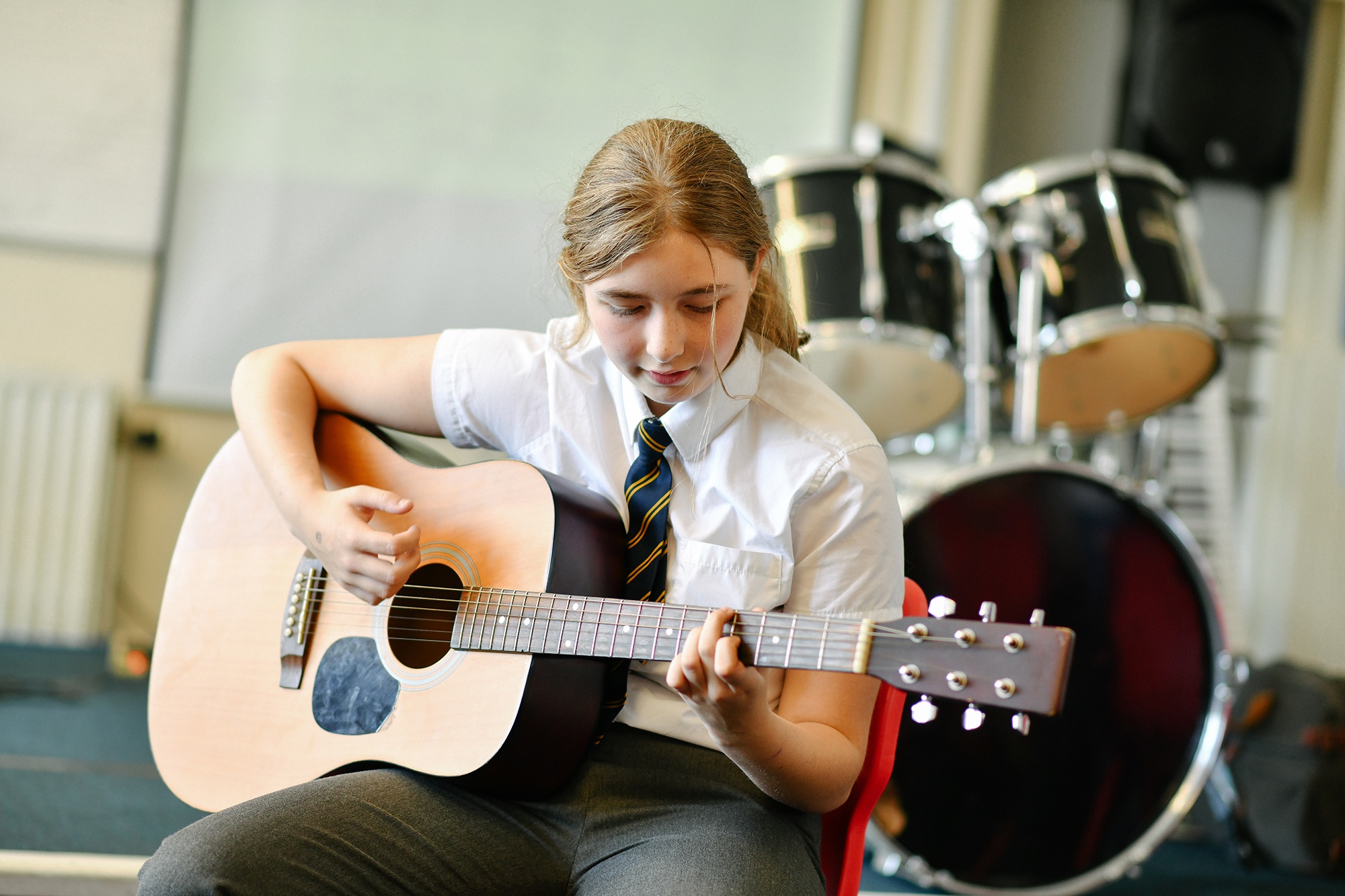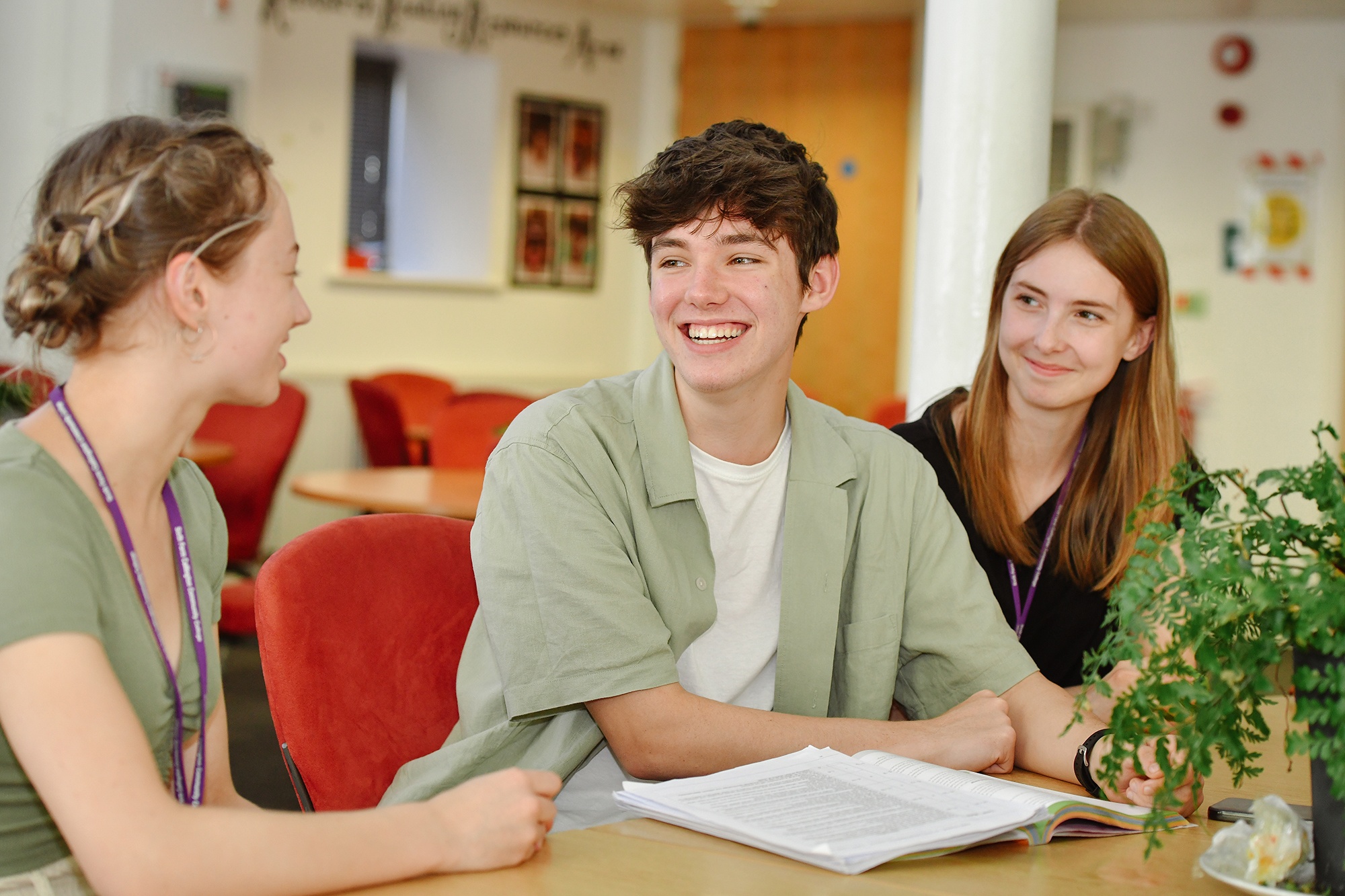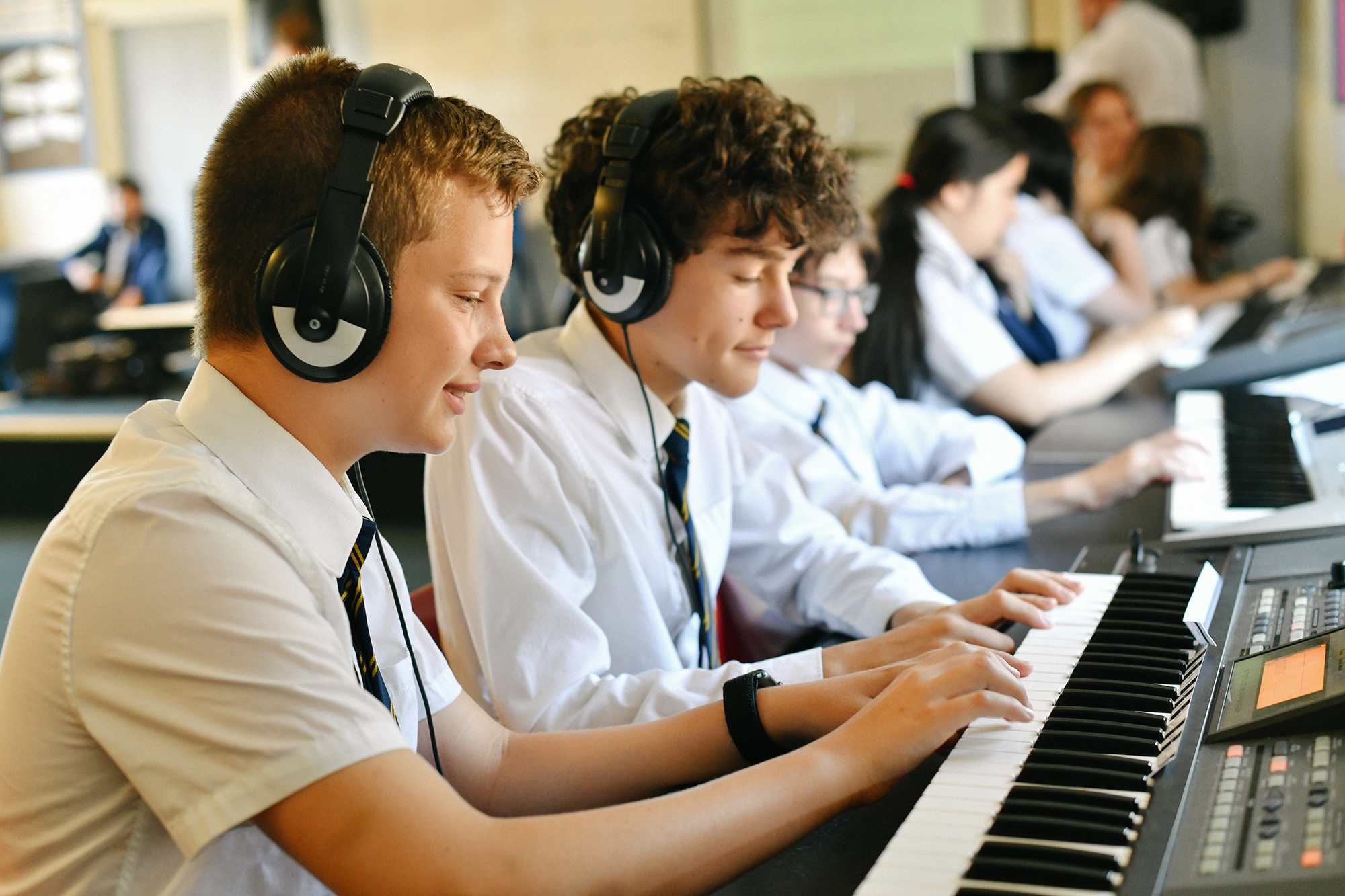Design Technology
Design and Technology is about providing opportunities for students to develop their creativity; combining their designing and making skills with knowledge and understanding in order to create quality products. At Callington Community College students follow a curriculum that is challenging and varied. They will gain an understanding of function, aesthetics, social and environmental issues and industrial practices. They will develop a range of techniques to communicate their designs including verbal and graphical expression and modelling. Through evaluation and reflection they will become informed and discriminating product developers. In Key Stage 3 students follow a curriculum that encompasses the full range of Design Technology materials and process; Resistant Materials, Systems and control, Graphics and Food and Nutrition. At the end of Year 8 they will opt for an area of study for Key Stage 4, from a choice of Food Preparation and Nutrition, Design and Technology: Resistant Materials. All courses are GCSE. We also offer BTEC Construction, a highly successful vocational course for students wishing to learn skills linked to the building industry.
We have a long history of very successful exam results within our Food Department which are significantly above national averages. We are very proud of the standard of work that students at Callington achieve.
Staff within the department include:
Mr Carson: Teacher of Design Technology, GCSE Resistant Materials and Electronic Products, and A level Product Design/Engineering
scarson@callingtoncc.net
Ms Layton: Teacher of GCSE Food and KS3 Food Technology
jlayton@callingtoncc.net
Key Stage 3
DT
Year 7
Module 1: Point of sale – Intergalactic travel: A mixed materials project which uses CAD skills, circuit making (PCB) and line bending acrylic to make a self-standing Point of sale card holder linked to a space themed travel agency.
Module 2: Mega Bugs: A metal work project to create and assemble an aluminium metal bug of their own design, complete with wings, legs and often with a spray paint finish or
Year 8
Module 1: Storage box: A wood working project teaching the student about a variety of traditional wood joints and finishing techniques to produce a wooden box with a lid suitable for storing keepsakes, jewellery etc
Module 2: Electronic timer: An extension of the electronics skills learned in module 2, here the student will also create their own housing using plastic and moulding techniques. Their self-designed circuit will operate a buzzer or light similar to a door bell or a count-down timer.
Food
Year 7
Module 1: Baking methods: A range of baked products using different skills to combine ingredients. Students will also focus on health and safety and theoretical components linked to the function of ingredients.
Module 2: Salads: Students will learn how to use a range of chopping skills with fruits and vegetables to make a range of salads culminating in salads which are designed around a carbohydrate ingredient. Within this unit there will also be a large component of theory connected to healthy eating and the role of nutrients within our diets.
Year 8
Module 1: Ethnic foods: Students will learn about cuisines, ingredients and techniques from around the world. They will learn how to make a range of ethnic main meals which incorporate knife skills and the use of the various functions associated with a cooker- grill, hob and oven. They will learn about where foods comes from develop their understanding of culture both here is the UK and from around the world.
Module 2: Bread module: Within this module, students will learn about the bread making process and how the conditions of growth are achieved. They will learn how to adapt a bread recipe to create a range of exciting outcomes. The theory will connect to food manufacture, costings, nutritional analysis and adaptation linked to special diets.
Key Stage 4
For Year 8 students considering their options, we currently offer GCSE Food or GCSE Design Technology. For students in older year groups, some are still currently studying legacy specifications which will soon no longer be available. These course include courses entitled Catering, Resistant Materials and Electronic Products, all of which are GCSE’s. Details on our new courses are as follows:
GCSE Design Technology
Assessment
GCSE Design Technology
EXPECTED OUTCOME — NO SPECIFICATION AS YET
Unit 1: Written paper – 50%
A range of short and longer style essay questions based around the theoretical elements of the course (see inside for more details)
Unit 2: Design and Making practise – 50%
Students will design and make a nished product. In addition they will produce a concise design folder. This can be produced electronically or by hand and will consist of approximately 20 A3 pages. Students will spend approximately 45 hours on this activity.
Note: This course will include all aspects of Design Technology including Resistant Materials, Electronics, Graphic design and Textiles. Students will be examined on all areas, but will specialise in one area for their coursework.
For further details on this course please speak to Mr Savage, Mr Carson or Miss Claxton
Practical work
Students will carry out a wide range of practical tasks using di erent materials and processes to develop the skills they will need to realise their design ideas.
Once they have completed this they will then be ready to progress onto their main project and making a nal product. The project is based around set design briefs from the exam board.
Examples of briefs include:
- Design and make a small product that could be sold in a garden centre.
- Design and make a product suitable for the “Outdoor living” section of a large department store.
- Design and make an accessory or product for a sport or musical activity of your choice.
- Design and make a small storage unit in uenced by any design era from the last 50 years.
- Design and make a co ee table with a small storage space included.
- Design and make a gadget tidy for mobile phones, remote controls, phone chargers, MP3 players, iPods etc.
- Design and make a themed toy that incorporates moving parts or removable parts to add interest.
- Design a range of jewellery based around recycled products.
Theory work
Through a wide variety of theoretical exercises and tasks, students will learn about the following theory topics:
- Use of materials: metals, timber, fabric, plastics, composites, smart and nano materials
- Techniques and processes: preparation, marking out, cutting, shaping, forming and bending, casting and moulding, cleaning and nishing Adhesives and applied nishes STEM /CAD/CAM systems and uses of ICT Quality control
- The design process
- Health and safety
- Environmental issues
- Social and cultural in uences on the consumer market
- Moral and ethical issues a ecting design
GCSE Design and Technology: Electronic Products
Course title: Edexcel GCSE Design and Technology: Electronic Products
Unit code 2EP01
3 year course (2 hours per week)
|
|
Sept/Oct Half term |
Nov/Dec Half term |
Jan/Feb Half term |
Feb/March Half term |
April/May half term |
June/July half term |
|---|---|---|---|---|---|---|
|
10 |
Introduction to controlled assessment
Controlled Assessment Unit 1 Creative Design and Make Stage 1.1 Analysing the brief Stage 1.2 Research Stage 1.3 Specification |
Drawing skills and circuit theory
Unit 1 Creative design Stage 2.1 Initial ideas – of both casing and circuits Stage 2.2 review Stage 2.3 Communication |
Cad skills and breadboard modelling
Controlled assessment Stage 3.1 Development Stage 3.2 Final design Stage 4.1 Production plan |
Students to make a fully function electronic product to focus on - Stage 5.1 Quality of manufacture Stage 5.2 Quality of outcome Stage 5.3 Health and Safety
|
Students to make a fully function electronic product to focus on - Stage 5.1 Quality of manufacture Stage 5.2 Quality of outcome Stage 5.3 Health and Safety |
Students to make a fully function electronic product to focus on - Stage 5.1 Quality of manufacture Stage 5.2 Quality of outcome Stage 5.3 Health and Safety |
|
11 |
Stage 6.1 Testing and evaluation |
Revision for final examination |
Revision for final examination |
Revision for final examination |
Revision for final examination |
|
GCSE Design and Technology: Resistant Materials
Unit 1: Written Paper (45601)
2 hours –120 marks – 40%
Candidates answer all questions in two sections
Pre-Release material issued in March.
Unit 2: Design and Making Practice (45602)
Approximately 45 hours – 90 marks – 60%
Consists of a single design and make activity selected from a range of board set tasks
- http://www.aqa.org.uk/ (examining body website)
- http://www.aqa.org.uk/subjects/design-and-technology/gcse/design-and-technology-resistant-materials-4560 (link to specification and online resources)
3 year course (2 hours per week)
|
|
Sept/Oct Half term |
Nov/Dec Half term |
Jan/Feb Half term |
Feb/March Half term |
April/May half term |
June/July half term |
|---|---|---|---|---|---|---|
|
9 |
Introduction to the course. Wood working skills and portfolio of wood working joints. |
Continued wood working skills and creation of frame. Introduction to practical skills in wood, metal and plastic. |
Building on quality of practical skills in wood, metal and plastic. Creation of mechanical toy. |
Mock Controlled Assessment section 3 and 4 (making and evaluation). Creation of a small storage unit. |
Mock Controlled Assessment section 3 and 4. Continued small storage unit |
Mock Controlled Assessment section 1 and 2 (design and development). Creation of a creativity project. |
|
10 |
Mock Controlled Assessment section 1 and 2. Continued creativity project |
Introduction to working with modern materials. Creation of sensor using smart materials. |
Controlled Assessment section 1 (research and investigation). This is worth 8/100 marks |
Controlled Assessment section 2 (design and development). This is worth 32/100 marks |
Controlled Assessment section 2 (design and development). This is worth 32/100 marks |
Controlled Assessment section 3 (making). This is worth 32/100 marks |
|
11 |
Controlled Assessment section 3 (making). This is worth 32/100 marks |
Controlled Assessment section 4 (evaluation). This is worth 12/100 marks |
Revision for final exam. |
Revision for final exam. |
Revision for final exam and preparation for section A of the exam. |
|
GCSE Food
The course content is divided into 6 sections which will create a broad level of knowledge and skills relating to all aspects of food.
- Food commodities
- Principles of nutrition
- Diet and good health
- The science of food
- Where food comes from
- Cooking and food preparation
During the first 2 years of this course, students will develop a range of skills both for practical assessment and the scientific investigation they will carry out during yr 11. Despite being a practical subject, there is still a large amount of theory involved and students are expected to fully apply themselves to paper work, of which there is a lot.
If you are expecting a lot of practical work you will not be disappointed. But expect written work too! There will be regular homework’s too and these will help support students in preparing for assessments and their final written exam.
This course is designed for people who are passionate about food and love cooking. If you are enthusiastic about developing your skills, even if you have few to start with, hard work and dedication will ensure your success.
There are two non-exam assessments, one of which is a scientific investigation. Each term in yr 9, we will deliver a new topic based around a nutrient group and from this starting point we will carry out practice science experiments.
Each area of study will also include a range of cooking dishes which will prepare students for their practical exam in yr 11. If you choose this course you will be expected to bring in your own ingredients and organise yourself
Assessment:
- 35% Practical exam
- 15% Scientific investigation
- 50% Written exam
The new Key Stage 4 Food option (GCSE Food Preparation and Nutrition) will deliver similar practical skills as the old GCSE Catering course. Within the new course, additional skills will be delivered looking at more modern and scientific developments within the food industry.
This brand new course will provide opportunities for students to explore a wider theory content linked to nutrition and food science, rather than just vocational learning linked to the working practices of the catering industry. They will also learn about food provenance, where it comes from and how it is produced from raw ingredient to restaurant or manufactured product.

